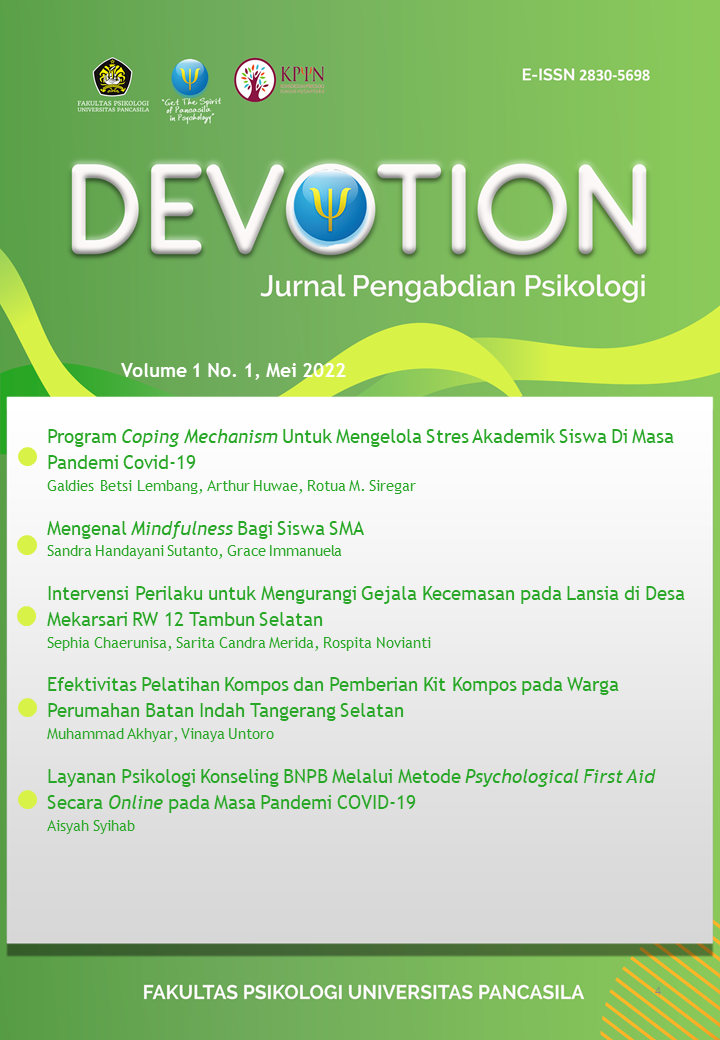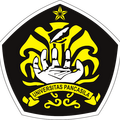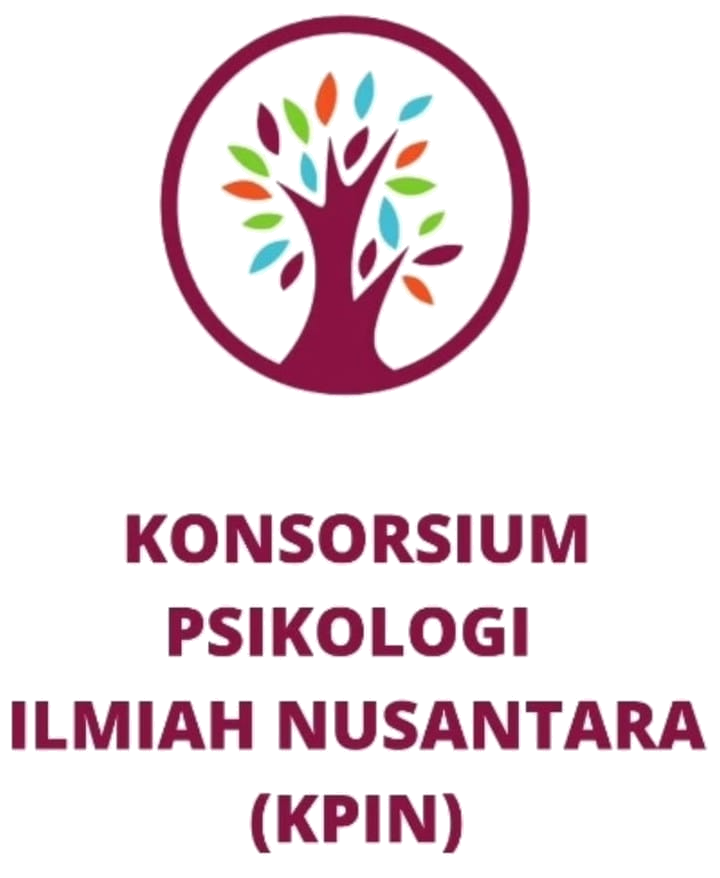Program Coping Mechanism untuk Mengelola Stres Akademik Siswa di Masa Pandemi COVID-19
DOI:
https://doi.org/10.35814/devotion.v1i01.3315Keywords:
Acedemic stress, coping mechanism, COVID-19 pandemic, studentsAbstract
The COVID-19 pandemic appears to have spread and is having an impact on educational institutions' learning processes, as well as producing numerous psychological pressures that are detrimental to students' academic welfare. Students are subjected to continuous stress, which, if not addressed promptly and correctly, can lead to worsening and potentially dangerous problems. Therefore, the coping mechanism program is thought to be capable of assisting students in developing and executing optimal stress management methods in all academic activities. From January to May 2021, students from Barana Toraja Utara Christian High School class X-XII participated in community service activities (PkM). The exercise took the form of coping mechanism training . The results of the activity imply that students can use academic activities to develop coping skills in order to reduce stress and increase excitement and aggression in studying.
References
Ananda, S. S. D., & Apsari, N. C. (2020). Mengatasi stress pada remaja saat pandemi COVID-19 dengan teknik self talk. Prosiding Penelitian & Pengabdian Masyarakat, 7(2), 248-256. https://doi.org/10.24198/jppm.v7i2.29050.
Barseli, M., Ifdil, I., & Fitria, L. (2020). Stress akademik akibat COVID-19. JPGI: Jurnal Penelitian Guru Indonesia, 5(2), 95-99. https://doi.org/10.29210/02733jpgi0005.
Blazer, C. (2010). Student stress. Information Capsule: Research Services, 1006, 1-18.
Chaturvedi, K., Vishwakarma, D. K., & Singh, N. (2021). COVID-19 and its impact on education, social life and mental health of students: A survey. Children and Youth Services Review, 121. https://doi.org/10.1016/j.childyouth.2020.105866.
Damayamti, D. T., & Masitoh, A. (2020). Strategi koping siswa dalam menghadapi stres akademik di era pandemi COVID-19. Academica: Journal of Multidisciplinary Studies, 4(2), 185-198.
Hakim, R. E., & Herdiana, I. (2021). Pengaruh strategi koping terhadap stres akademik siswa SMA pada masa pandemic COVID-19. BRPKM: Buletin Riset Psikologi dan Kesehatan Mental, 1(1), 976-984. http://dx.doi.org/10.20473/brpkm.v1i1.27670.
Haleem, A., Javaid, M., & Vaisya, R. (2020). Effect of COVID-19 pandemic in daily life. Current Medicine Research and Practice, 10(2), 78-79. Doi:10.1016/j.cmrp.2020.03.011.
Lazarus, R. S., & Folkman, S. (1984). Stress, appraisal, and coping. New York: McGraw-Hill, Inc.
Lenaert, B., Boddez, Y., Vlaeyen, J. W. S., & VanHeugten, C. M. (2018). Learning to tired: A learning trajectory towards chronic fatigue. Behaviour Research and Therapy, 100, 54-66. https://doi.org/10.1016/j.brat.2017.11.004.
Mazo, G. N. (2015). Causes effects of stress, and the coping mechanism of the bachelor of science in information technology students in a Philippine university. Journal of Education and Learning, 9(1), 71-78.
Mujahidah, N. E., Astuti, B., & Nhung, L. N. A. (2019). Decreasing academic stress through problem-focused coping strategy for junior high school students. Psychology Evaluation, and Technology in Educational Research, 2(1), 1-9. http://dx.doi.org/10.33292/petier.v2i1.25.
Ros, R. G., Gonzalez, F. P., & Thomas, J. M. (2018). Development and validation of the questionnaire of academic stress in secondary education: Structure, reliability and nomological validity. International Journal of Environmental Research and Public Health, 15,2023. Doi:10.3390/ijerph15092023.














